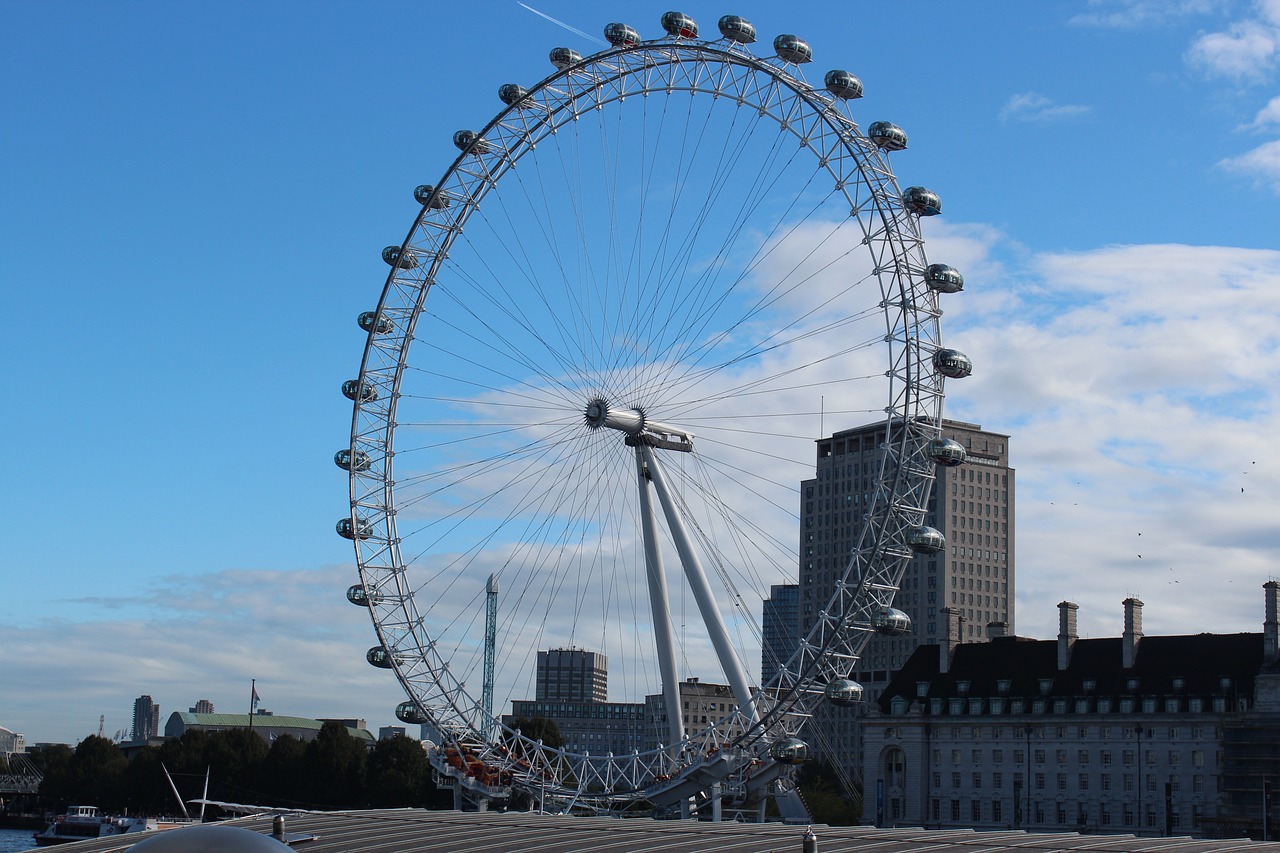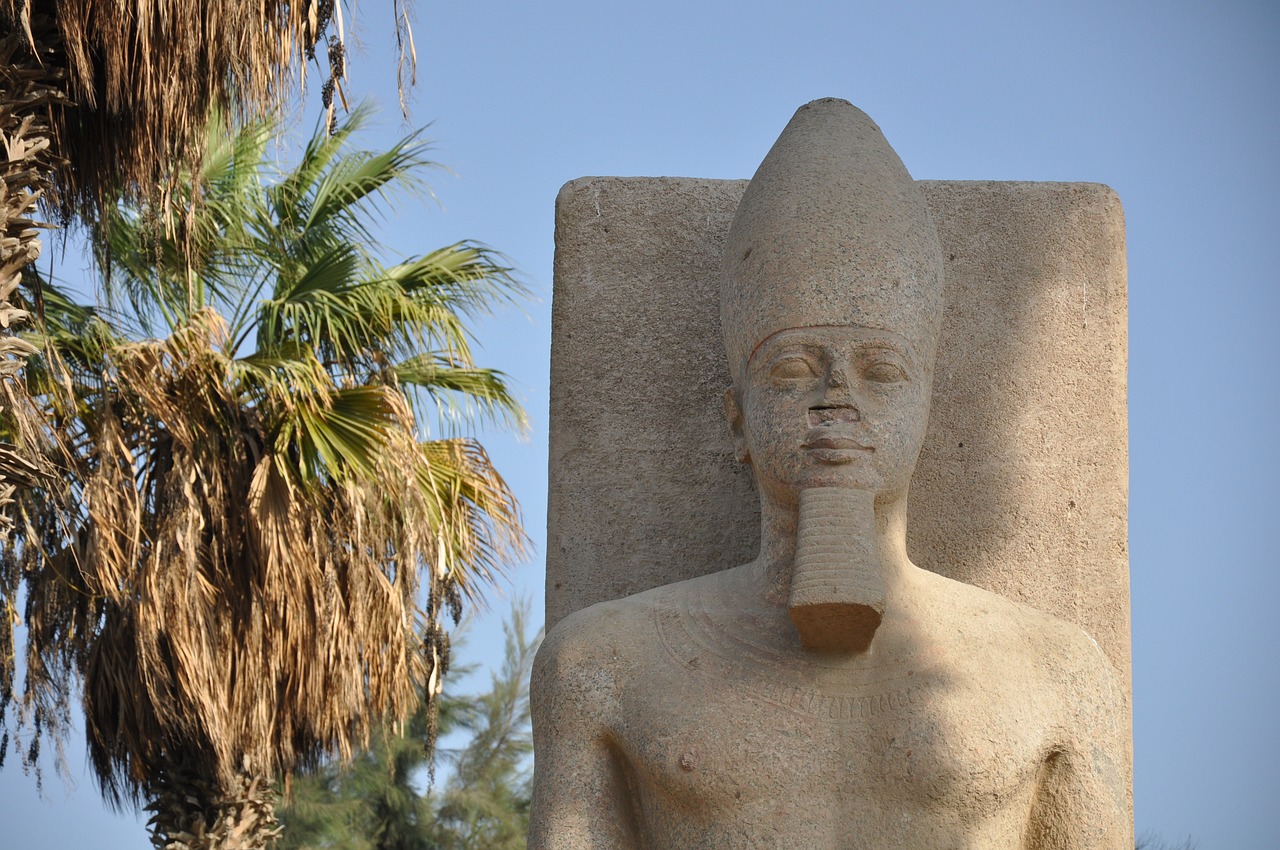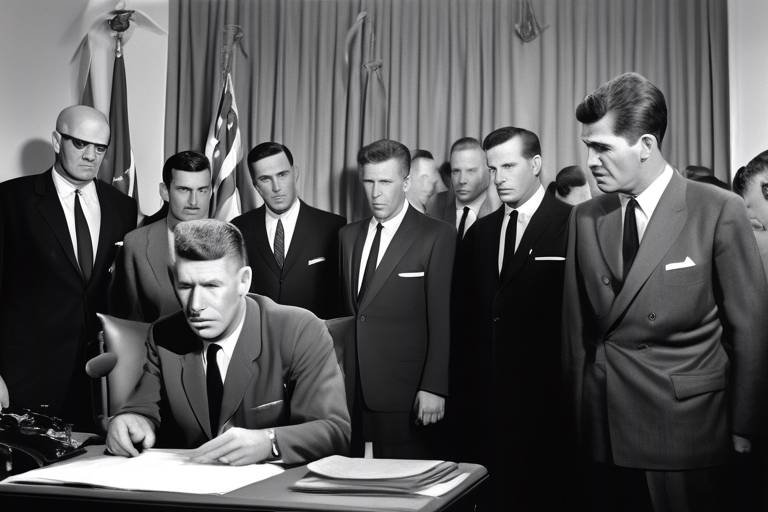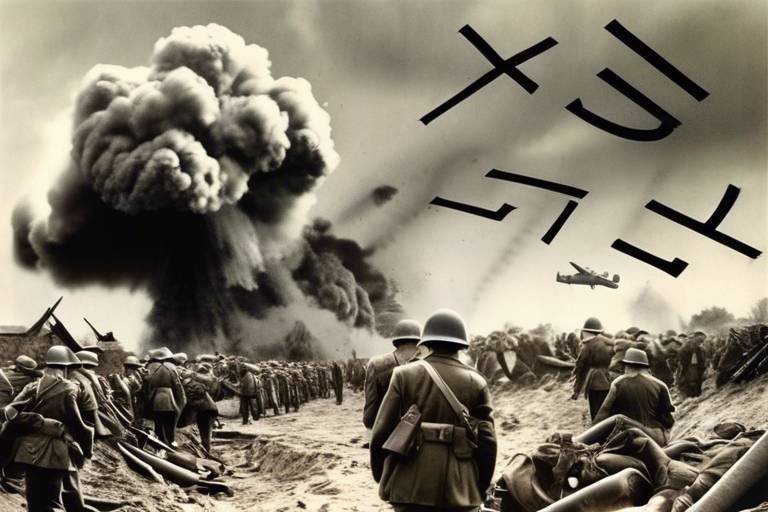The Impact of World War II on Global Politics
The aftermath of World War II was a seismic shift in the landscape of global politics, reshaping international relations in profound ways. The devastation and chaos left in the wake of the war forced nations to reconsider their roles on the world stage and set the groundwork for significant changes to come.
One of the most notable outcomes of World War II was the rise of superpowers, namely the United States and the Soviet Union. These two nations emerged from the conflict as dominant forces, wielding immense power and influence over global affairs. The competition and tension between these superpowers would come to define much of the post-war era.
Decolonization movements also gained momentum in the aftermath of World War II. The war weakened colonial empires, making it increasingly difficult for European powers to maintain control over their overseas territories. This shift led to the rise of independence movements in many colonies, ultimately resulting in the dismantling of empires and the birth of new nations.
The establishment of the United Nations was a direct result of the lessons learned from World War II. This international organization was created with the goal of promoting peace and cooperation among nations, serving as a forum for dialogue and conflict resolution on a global scale. The United Nations played a crucial role in shaping the post-war world order and continues to be a key player in international politics.
The tensions between the United States and the Soviet Union during the Cold War period were deeply rooted in the aftermath of World War II. The ideological differences and power struggles between these two superpowers fueled a decades-long rivalry that had far-reaching implications for global politics, leading to proxy wars, arms races, and geopolitical maneuvering.
Efforts to rebuild war-torn Europe were also a significant consequence of World War II. Initiatives like the Marshall Plan provided crucial economic assistance to European countries, helping to revive their economies and stabilize the region. The reconstruction of Europe had lasting effects on the economic and political dynamics of the continent.
World War II also played a pivotal role in the development of human rights laws and international legal frameworks. The atrocities committed during the war highlighted the need for universal standards to protect human rights and prevent future conflicts. The establishment of international institutions and conventions aimed at upholding human rights became a key priority in the post-war era.
Technological advancements spurred by World War II had a lasting impact on global politics and warfare. Innovations in military technology, such as nuclear weapons and radar systems, reshaped the nature of conflict and power dynamics among nations. The legacy of these advancements continues to influence military strategies and international relations to this day.
In conclusion, the impact of World War II on global politics cannot be overstated. From the rise of superpowers to the establishment of international organizations, the war left a profound mark on the world that continues to shape our present-day geopolitical landscape. By reflecting on the lessons learned from this tumultuous period in history, we can strive to build a more peaceful and cooperative world for future generations.

Rise of Superpowers
The aftermath of World War II saw a seismic shift in global power dynamics, giving rise to two dominant superpowers that would shape international relations for decades to come. The United States and the Soviet Union emerged from the conflict as the world's leading powers, each with its own ideological agenda and sphere of influence. The unparalleled military might and economic strength of these superpowers solidified their positions at the forefront of global politics, setting the stage for a new era of competition and cooperation.

Decolonization Movements
After World War II, the landscape of global politics underwent a significant transformation, particularly in the realm of decolonization movements. The war's aftermath catalyzed a wave of nationalist movements in colonial territories, challenging the existing imperial powers and paving the way for independence.
The impact of World War II on colonial empires was profound, as the conflict weakened the colonial powers both economically and politically. This created an opportune moment for colonies to assert their demands for self-determination and sovereignty, leading to the rise of decolonization movements across Asia, Africa, and the Middle East.
One of the key catalysts for decolonization was the changing global perception of imperialism in the post-war era. The atrocities of World War II exposed the contradictions of imperial rule, with colonial subjects questioning the legitimacy of foreign domination and demanding their right to govern themselves.
The decolonization process was not without challenges and conflicts, as colonial powers often resisted granting independence and sought to maintain control through various means. However, the determination of nationalist leaders and the support of the international community ultimately tipped the scales in favor of decolonization.
Through diplomatic negotiations, armed struggles, and non-violent resistance movements, many nations successfully gained independence in the decades following World War II. The decolonization movements not only reshaped the political map of the world but also inspired other marginalized groups to seek liberation and equality.

Formation of the United Nations
Exploring how World War II reshaped international relations, influenced the formation of new global alliances, and set the stage for the Cold War between the United States and the Soviet Union.
The emergence of the United States and the Soviet Union as superpowers following World War II and their subsequent dominance in shaping global politics.
The impact of World War II on colonial empires, leading to the rise of decolonization movements and the eventual independence of many nations.
The aftermath of World War II led to the establishment of the United Nations, a pivotal organization aimed at maintaining international peace and security. The formation of the United Nations marked a significant shift in global governance, providing a platform for countries to address conflicts through diplomacy and cooperation. This institution played a crucial role in preventing future large-scale conflicts by promoting dialogue and negotiation among nations.
The tensions between the United States and the Soviet Union during the Cold War period were deeply rooted in the aftermath of World War II. The ideological differences and power struggle between these superpowers intensified, leading to a global standoff that shaped international relations for decades to come.
In the aftermath of World War II, efforts were made to rebuild war-torn Europe. Initiatives like the Marshall Plan injected financial aid into European countries, fostering economic recovery and stability. The reconstruction of Europe not only revitalized the continent but also played a crucial role in shaping its political landscape and fostering unity among nations.
World War II served as a catalyst for the development of human rights laws and international legal frameworks. The atrocities witnessed during the war prompted the international community to establish mechanisms to protect human rights and prevent future conflicts. The Nuremberg Trials, for example, set a precedent for holding individuals and states accountable for war crimes and crimes against humanity.
The technological advancements spurred by World War II revolutionized warfare and had a lasting impact on global politics. Innovations in military technology, such as radar, aircraft, and nuclear weapons, reshaped the dynamics of international conflicts. The race for technological superiority between nations became a defining feature of the post-war era, influencing military strategies and alliances.
Reflecting on the enduring legacy of World War II on global politics, it is evident that the lessons learned from this catastrophic event continue to shape international relations. The importance of diplomacy, cooperation, and conflict resolution mechanisms has been underscored by the consequences of unchecked aggression and power politics. By studying the legacy of World War II, we can strive to prevent similar conflicts in the future and build a more peaceful world.

Cold War Tensions
Exploring how World War II reshaped international relations, influenced the formation of new global alliances, and set the stage for the Cold War between the United States and the Soviet Union.
The emergence of the United States and the Soviet Union as superpowers following World War II and their subsequent dominance in shaping global politics.
The impact of World War II on colonial empires, leading to the rise of decolonization movements and the eventual independence of many nations.
The role of World War II in the establishment of the United Nations and its significance in maintaining international peace and security.
The aftermath of World War II witnessed escalating tensions between the United States and the Soviet Union, marking the beginning of the Cold War era. The competition for ideological supremacy and global influence between these two superpowers intensified, shaping international relations for decades to come.
Efforts to rebuild war-torn Europe post-World War II were crucial in shaping the economic and political landscape of the continent. Initiatives like the Marshall Plan played a significant role in the reconstruction and recovery of European nations, fostering stability and cooperation.
World War II played a pivotal role in the development of human rights laws and international legal frameworks. The atrocities of the war prompted the establishment of conventions and treaties aimed at safeguarding human rights and preventing future conflicts, laying the foundation for a more just and peaceful world order.
The technological advancements spurred by World War II, particularly in military technology, had a lasting impact on global politics and warfare. Innovations in areas such as aviation, communication, and weaponry revolutionized military strategies and continued to shape the balance of power among nations.
Reflecting on the enduring legacy of World War II on global politics, it serves as a stark reminder of the devastating consequences of conflict. The lessons learned from the war emphasize the importance of diplomacy, cooperation, and collective security to prevent similar catastrophic events in the future.
Stay tuned for answers to common queries about the impact of World War II on global politics.

European Reconstruction
Exploring how World War II reshaped international relations, influenced the formation of new global alliances, and set the stage for the Cold War between the United States and the Soviet Union.
The emergence of the United States and the Soviet Union as superpowers following World War II and their subsequent dominance in shaping global politics.
The impact of World War II on colonial empires, leading to the rise of decolonization movements and the eventual independence of many nations.
The role of World War II in the establishment of the United Nations and its significance in maintaining international peace and security.
The escalating tensions between the United States and the Soviet Union during the Cold War period, influenced by the aftermath of World War II.
Efforts to rebuild war-torn Europe through initiatives like the Marshall Plan, shaping the economic and political landscape of the continent. The post-World War II era saw Europe in ruins, both physically and economically. The Marshall Plan, a massive aid program initiated by the United States, injected billions of dollars into European countries for reconstruction. This not only helped rebuild infrastructure but also revitalized economies, laying the foundation for the prosperous Europe we see today. The plan was like a phoenix rising from the ashes, breathing new life into a continent devastated by war.
The impact of World War II on the development of human rights laws and international legal frameworks to prevent future conflicts and atrocities.
The technological advancements spurred by World War II, particularly in military technology, that continued to influence global politics and warfare.
Reflecting on the enduring legacy of World War II on global politics and the lessons learned to prevent similar conflicts in the future.

Human Rights and International Law
World War II had a profound impact on global politics, reshaping international relations and setting the stage for significant developments that would shape the world for decades to come. One of the key outcomes of the war was the emergence of the United States and the Soviet Union as superpowers, marking a shift in the balance of power on the global stage.
The aftermath of World War II saw the rise of the United States and the Soviet Union as superpowers, each vying for influence and dominance in the post-war world. The competition between these two nations would come to define international relations during the Cold War era, shaping the geopolitical landscape and influencing global policies.
Another significant impact of World War II was the acceleration of decolonization movements across the globe. The war weakened colonial empires, making it increasingly difficult for European powers to maintain control over their overseas territories. This led to the rise of independence movements in various regions, ultimately leading to the dismantling of many colonial empires.
In response to the devastation of World War II and the need for a mechanism to prevent future conflicts, the United Nations was established. The creation of this international organization marked a significant step towards promoting peace and cooperation among nations, with a focus on upholding human rights and international law.
The tensions between the United States and the Soviet Union during the Cold War were a direct result of the aftermath of World War II. Ideological differences, military build-up, and proxy conflicts characterized this period of heightened global tension, with the world divided into two opposing camps.
Efforts to rebuild war-torn Europe after World War II were crucial in shaping the economic and political landscape of the continent. Initiatives like the Marshall Plan provided vital aid for European countries, fostering recovery and laying the groundwork for a more stable and prosperous Europe.
The atrocities of World War II prompted the development of human rights laws and international legal frameworks aimed at preventing future conflicts and upholding fundamental rights. The Universal Declaration of Human Rights, adopted in 1948, was a milestone in establishing a global commitment to protecting human dignity and promoting peace.
World War II spurred significant advancements in military technology, with innovations in areas such as aviation, communication, and weaponry. These technological developments continued to influence global politics and warfare in the decades that followed, shaping military strategies and capabilities.
Reflecting on the legacy of World War II reminds us of the importance of learning from history to prevent similar conflicts in the future. The lessons learned from the war have shaped international relations, emphasizing the need for diplomacy, cooperation, and respect for human rights in addressing global challenges.

Technological Advancements
Exploring how World War II reshaped international relations, influenced the formation of new global alliances, and set the stage for the Cold War between the United States and the Soviet Union.
The emergence of the United States and the Soviet Union as superpowers following World War II and their subsequent dominance in shaping global politics.
The impact of World War II on colonial empires, leading to the rise of decolonization movements and the eventual independence of many nations.
The role of World War II in the establishment of the United Nations and its significance in maintaining international peace and security.
The escalating tensions between the United States and the Soviet Union during the Cold War period, influenced by the aftermath of World War II.
Efforts to rebuild war-torn Europe through initiatives like the Marshall Plan, shaping the economic and political landscape of the continent.
The impact of World War II on the development of human rights laws and international legal frameworks to prevent future conflicts and atrocities.
World War II spurred significant technological advancements, particularly in military technology, that continued to have a lasting impact on global politics and warfare. The war acted as a catalyst for innovation, driving advancements in areas such as radar, aviation, and nuclear technology. These developments not only transformed the nature of warfare but also played a crucial role in shaping the power dynamics between nations.
Reflecting on the enduring legacy of World War II on global politics and the lessons learned to prevent similar conflicts in the future.
Stay tuned for some frequently asked questions about the impact of World War II on global politics.

Legacy and Lessons Learned
Exploring how World War II reshaped international relations, influenced the formation of new global alliances, and set the stage for the Cold War between the United States and the Soviet Union.
The emergence of the United States and the Soviet Union as superpowers following World War II and their subsequent dominance in shaping global politics.
The impact of World War II on colonial empires, leading to the rise of decolonization movements and the eventual independence of many nations.
The role of World War II in the establishment of the United Nations and its significance in maintaining international peace and security.
The escalating tensions between the United States and the Soviet Union during the Cold War period, influenced by the aftermath of World War II.
Efforts to rebuild war-torn Europe through initiatives like the Marshall Plan, shaping the economic and political landscape of the continent.
The impact of World War II on the development of human rights laws and international legal frameworks to prevent future conflicts and atrocities.
The technological advancements spurred by World War II, particularly in military technology, that continued to influence global politics and warfare.
Reflecting on the enduring legacy of World War II on global politics and the lessons learned to prevent similar conflicts in the future.
Q: How did World War II shape the balance of power in the world?
A: World War II led to the rise of the United States and the Soviet Union as superpowers, significantly altering the global power dynamics.
Q: What role did the United Nations play in the aftermath of World War II?
A: The United Nations was established to promote international cooperation and prevent future conflicts, serving as a platform for diplomacy and peacekeeping efforts.
Q: How did technological advancements during World War II impact future warfare?
A: The technological innovations developed during World War II laid the foundation for modern military technology and tactics, shaping the nature of warfare in the decades to come.
Frequently Asked Questions
- What were the main outcomes of World War II on global politics?
World War II had profound effects on global politics, including the rise of superpowers like the United States and the Soviet Union, decolonization movements leading to the independence of many nations, the establishment of the United Nations, the onset of the Cold War, European reconstruction efforts, advancements in human rights laws, and technological innovations.
- How did World War II shape the formation of new global alliances?
World War II reshaped international relations by forging alliances among countries fighting against Axis powers. These alliances laid the groundwork for post-war cooperation and the establishment of organizations like the United Nations, aiming to prevent future conflicts and promote peace and security on a global scale.
- What role did the Cold War play in the aftermath of World War II?
The Cold War emerged as a result of tensions between the United States and the Soviet Union following World War II. These tensions were fueled by ideological differences, military build-ups, and proxy wars, shaping global politics for decades and influencing international relations, security strategies, and alliances.
- How did World War II impact human rights and international law?
World War II atrocities prompted the development of human rights laws and international legal frameworks to protect individuals from abuses and prevent future conflicts. The war's legacy in promoting human rights and upholding international law continues to influence global governance and diplomacy.



















